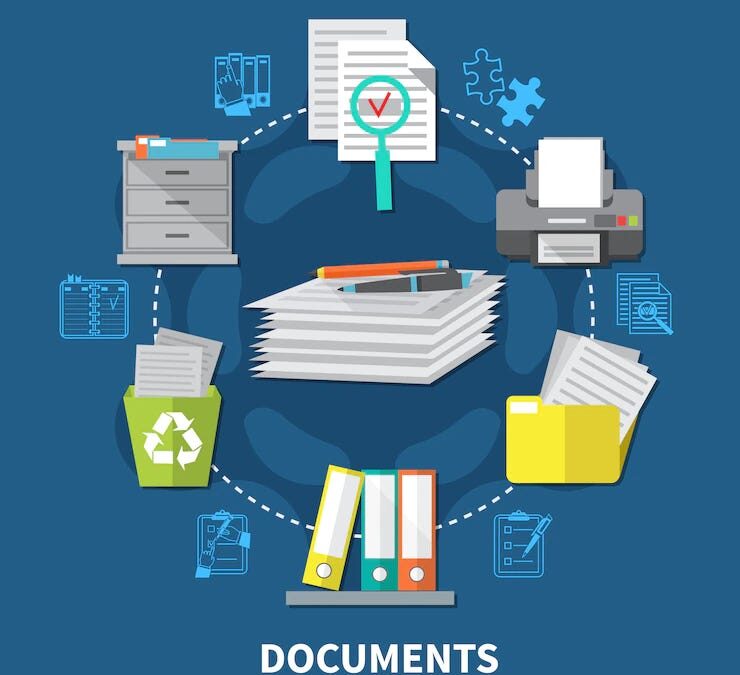 This article won the SmallLaw Pick of the Week from Technolawyer. SmallLaw is a free weekly email newsletter from Technolawyer that provides helpful information for those who manage and work in small law firms.
This article won the SmallLaw Pick of the Week from Technolawyer. SmallLaw is a free weekly email newsletter from Technolawyer that provides helpful information for those who manage and work in small law firms.
One of the major new features in PCLaw 11.0 is a closer integration with QuickBooks. Now, if PCLaw is already an award-winning, integrated solution for law firms, why should this be necessary? The answer is – to take advantage of the legal-specific billing and trust accounting capabilities of PCLaw, along with the advantages of tax submission contained in QuickBooks.
How the Link Works:
The new PCLaw-QuickBooks link is a one-way link. The data flow is from PCLaw to QuickBooks. Data is entered into PCLaw and is seamlessly integrated into QuickBooks. In Version 10 and below, PCLaw data was exported in an .IIF format for QuickBooks, but could only display totals. With Version 11, PCLaw data exported to QuickBooks includes detailed transactions and data entities.
Data that is transferred from PCLaw is flagged to indicate that records have been exported. This prevents data records from being exported more than once.
What and How Much Data Can Be Exported?
The link can be used in one of three ways –
1. Use PCLaw for all transactions, exporting to QuickBooks only for tax submission.
2. Use PCLaw for all transactions except Payroll, using QuickBooks for that function plus tax submission.
3. Use PCLaw to track Matter-related data; and QuickBooks for other, accounting functions.
Scenario #1: Using PCLaw for All Transactions
If the PCLaw-QuickBooks link is to be utilized, we strongly recommend this scenario because all billing and accounting data is in one program. Financial statements, Form 1099 generation and tax preparation may be done from either program.
• Data entered into PCLaw includes – All Matter-Related activities, Accounts Payable, Accounts Receivable, and Payroll. Journal entries are entered here, if needed. Bank reconciliations are performed here.
• Either PCLaw or QuickBooks may produce Form 1099s and Financial Statements
• QuickBooks will provide the data which can be exported to tax preparation software
Scenario #2: Using PCLaw for All Transactions Except Payroll
This is similar to Scenario #1, except that payroll transactions occur in QuickBooks. Because all data no longer resides in one program (a shortcoming, in our opinion), financial statements and tax liability reporting must occur in QuickBooks.
• Data entered into PCLaw includes – All Matter-Related activities, Accounts Receivable and Accounts Payable. Journal entries are entered here, if needed.
• Data entered into QuickBooks includes – Payroll, and non-Matter Billing/Revenue Allocation. Bank reconciliations, payroll tax liability reports, Form 1099s, and Financial Statements are generated in QuickBooks.
• QuickBooks will provide the data which can be exported to tax preparation software
Scenario #3: Using PCLaw for Only Matter-Related Transactions
We would like to emphasize here that this is the least-desirable scenario. Recording only Matter-related data in PCLaw does not use the program to its fullest advantage. It also increases the burden of doing things correctly in QuickBooks, as opposed to using the rules and safeguards built in PCLaw.
• Data entered into PCLaw includes – All Matter-Related activities and Accounts Receivable. Journal entries are entered here, if needed.
• Data entered into QuickBooks includes – Accounts Payable, Payroll and non-Matter Billing/Revenue Allocation. Bank reconciliations, payroll tax liability reports, Form 1099s, and Financial Statements are generated in QuickBooks.
• QuickBooks will provide the data which can be exported to tax preparation software
No matter what scenario is used, the following activities must always be entered into PCLaw:
• Creation of Clients and Matters
• Time Entries
• Fee Entries
• Disbursement entries (hard cost allocations from Accounts Payable or checks if written; otherwise soft costs)
• Transactions involving trust bank accounts
• Generation of bills
• Client Payments
• Bill adjustments (write ups, write downs, credits, etc.)
This new feature in Version 11 has both advantages and caveats. Our PCLaw consultants at Eastern Legal Systems would be happy to discuss them, and to answer questions about how to set up the link to maximize the advantages to your firm.
We’d also like to hear from those of you who have tried this feature. How are you using it? What do you think?
Contact us at 1-877-ELS-0555 or you may visit our web site at http://www.easternlegalsystems.com.

Dana Riel is President and Founder of Business Solutions, Inc., serving the Washington, D.C. metropolitan area since 1985. Her firm is the authorized training center for the region for Time Matters and PCLaw by PCLaw|Time Matters, PLLC; Timeslips and Sage 50 Accounting by Sage Software; and QuickBooks by Intuit Corporation. She also serves as a consultant for Caret Legal (formerly known as Zola Suite), CosmoLex, Soluno & TimeSolv. As a trainer, Dana has provided training services to organizations such as the DOD Defense Logistics Agency, Judge Advocate General’s Office (JAG)/Department of the Navy, University of the District of Columbia School of Law, U.S. Department of Commerce and the U.S. Department of Veterans Affairs, as well as with small‐ to mid‐size law firms in the Baltimore‐Washington D.C. area. In 2009, she participated in the series of day‐long seminars sponsored by the District of Columbia Bar Association Practice Management Section, titled “Basic Training: Learn About Running a Law Office”. Ms. Riel also served as an Adjunct Professor in Georgetown University’s Paralegal Studies Program, having taught the course, “Legal Ethics/Legal Technology” in 2009; and “Legal Technology” for the Spring and Summer Semesters of 2010. She presently serves on the Advisory Board for PCLaw|Time Matters, PLLC.



